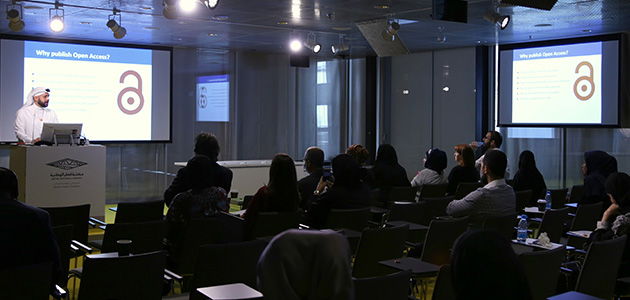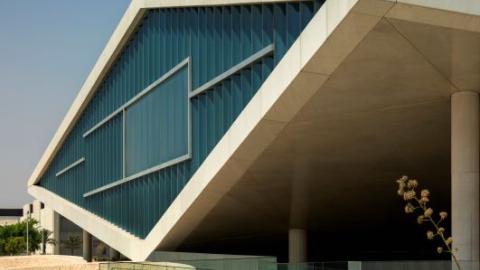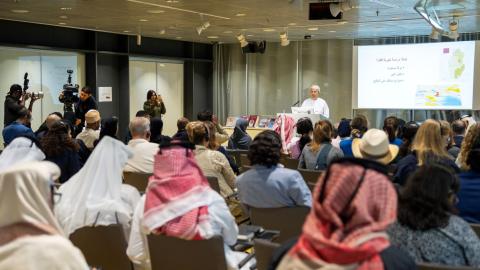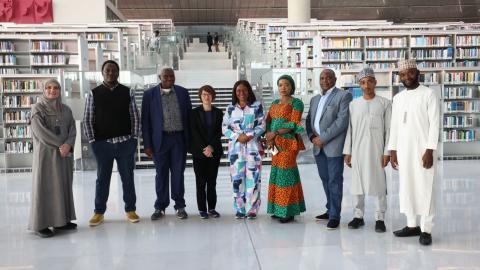
Qatar National Library (QNL) recently hosted two workshops in celebration of Open Access (OA) Week 2017, designed to promote free online access to scholarly research and the right to use and re-use those results as needed. The workshops were held at QNL’s new building in Education City, set to open to the public on November 7, and were co-hosted by Hamad Bin Khalifa University Press (HBKU Press), which, along with QNL, is a member of Qatar Foundation (QF).
Open access allows for scholarly research to be available online without financial or technical restrictions, allowing users to freely download, copy, and use that research for their own purposes.
The first OA Week workshop, ‘Discovering the World of Open Access,’ showed participants how to apply OA to their everyday workflow, and introduced them to a range of essential OA tools. The second workshop, titled ‘Publishing Open Access,’ was led by Dr. Alwaleed AlKhaja, Senior Editor at HBKU Press, and highlighted various OA publishing options, including those available for publishing in Qatar. The workshops were attended by researchers, librarians, scholars, academics, and students.
Commenting on the importance of OA to furthering learning, Dr. Sohair F. Wastawy, Executive Director, QNL, said: “Open access is a key concept driving the sharing of important research across borders, without financial, geographic, or political barriers. Qatar National Library is committed to facilitating the free flow of knowledge within Qatar and throughout the region and the world. We hope that these workshops will help local researchers and academics embrace open access as a way to share their important work and learn from others.”
QNL is committed to supporting open access. It maintains an open access fund, which supports the publication of Qatar-based research in quality OA journals. The vast collection of online databases at QNL also include OA resources such as the Directory of Open Access Journals, the Public Library of Science, and BioMed Central.
QNL, in partnership with the British Library, launched Qatar Digital Library (QDL), an online portal that provides users worldwide with open access to an extensive collection of historical archival items and manuscripts related to Qatar, the Arabian Gulf, and the wider Middle East in the British Library’s collection.
In addition, the digitization center at QNL, which contains a state-of-the-art digitization lab and studio, is working to make the unique items of its own Heritage Collection available for all through the QDL. Digitized materials include rare books, photographs, maps, manuscripts, and more.
HBKU Press, a member of HBKU, QF’s homegrown research institute, uses an open access model for all of its journals. All articles are immediately and permanently available online, in an easily readable format and archived wherever possible in internationally-recognized indexes, such as PubMed Central and Westlaw International. HBKU Press commissioned a white paper, available on its website, exploring the beginnings of the open access movement and its impact and significance for the future of academic publishing.
“One of the objectives of HBKU Press is to have a platform where local researchers have the opportunity to contribute to the local and global academic research landscape. This is why our academic publishing platform, QScience.com, was developed under an Open Access model which allows for authors to share their work freely, with higher access, download, and sharing rates, while ensuring proper citation,” Dr. Alkhaja explains. “Our Open Access model is in line with international standards meant to keep the author and the author’s interests at the heart of the publishing process. It also ensures that information from the region is being included in the wider knowledge economy.”







